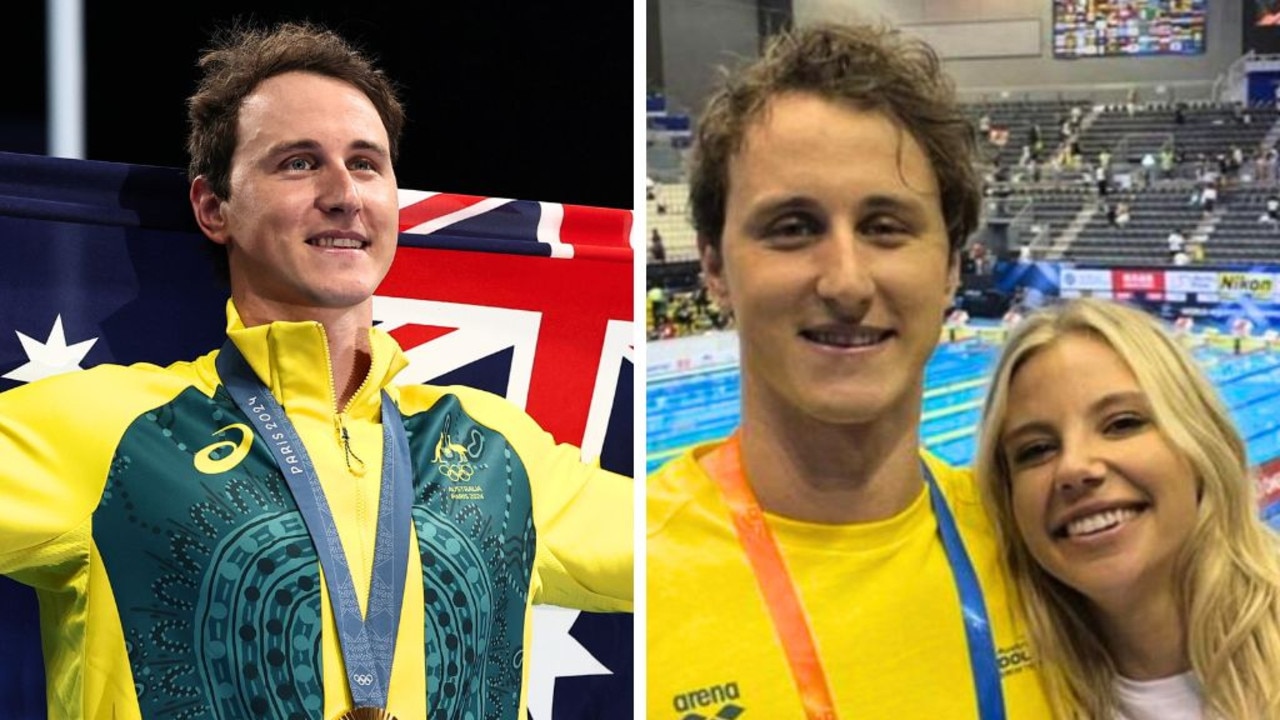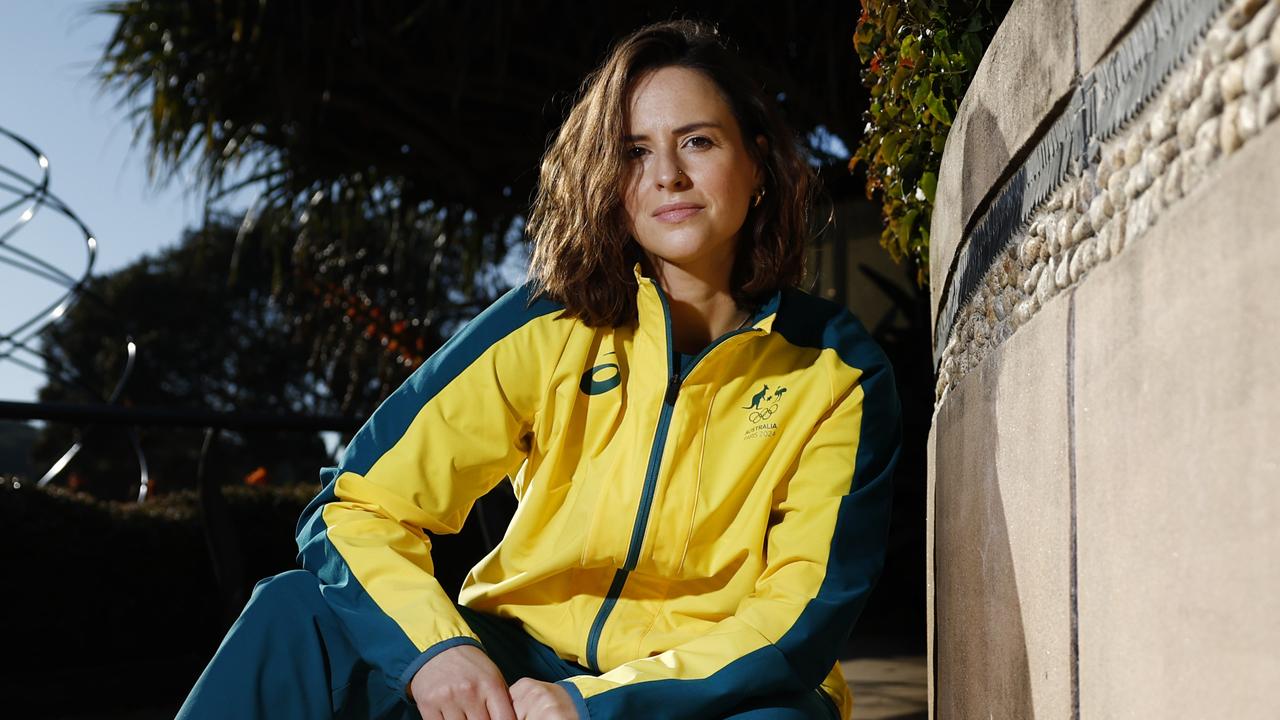Tokyo Olympics 2021: Russians’ medal celebrations soured by drug ban
After dominating in the pool and winning two medals, Russian swimmers have reacted to the drug ban that sees them competing in the Tokyo Olympics as ‘neutrals’.
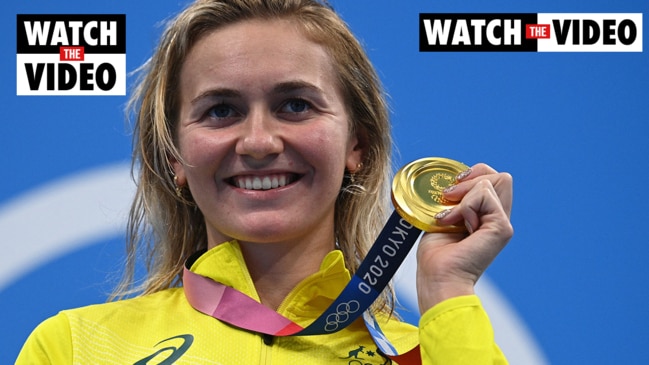
Olympics
Don't miss out on the headlines from Olympics. Followed categories will be added to My News.
The absence of Russia’s flag and anthem at the Olympic Games has soured the celebration of its male swimmers after a dominant display in the pool.
Russian athletes are competing as ‘neutrals’ under the rebranded Russian Olympic Committee banner after the country’s name, flag and anthem was banned from global events for two years following widespread doping.
Victorious athletes have music played by Russian composer Tchaikovsky.
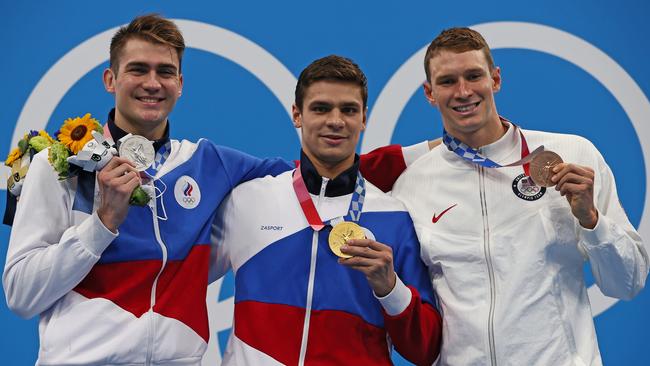
Russian Olympic gold medallist Evgeny Rylov - who beat Australia’s Mitch Larkin in the men’s 100m backstroke final on Tuesday - said it was unusual to win as a neutral athlete.
“When you’re standing on top of the podium of course you want to hear your national anthem,” he said.
“It is what it is.”
Silver medallist, Russian Kliment Kolesnikov, said the squad was only focused on winning medals.
“The decision has been made and we have to follow it,” he said.
“The most important thing is standing on top of the podium.”
Russia’s global ban was slashed from four years to two despite objections from the World Anti-Doping Agency.
WADA President Witol Banka said the agency would “very closely” monitor Russia’s Olympic athletes in Tokyo.
IN PICTURES: OLYMPIC ATHLETES BATTLE SCORCHING HEAT
Tokyo’s brutal summer heat is playing havoc with Olympic athletes, forcing organisers to bring events forward, and implement extreme heat policies.
The gold medallist in the men’s triathlon, Norway’s Kristian Blummenfelt, was taken away in a wheelchair after collapsing and vomiting immediately after crossing the finishing line.
Tennis implemented its extreme weather policy, giving competitors the opportunity to leave the court for 10 minutes to cool down after the second set.
The cross-country phase of the equestrian events has also been moved forward by an hour.
When Japan successfully bid for the 2020 summer games, their bid included the statement: “with many days of mild and sunny weather, this period provides an ideal climate for athletes to perform their best.”
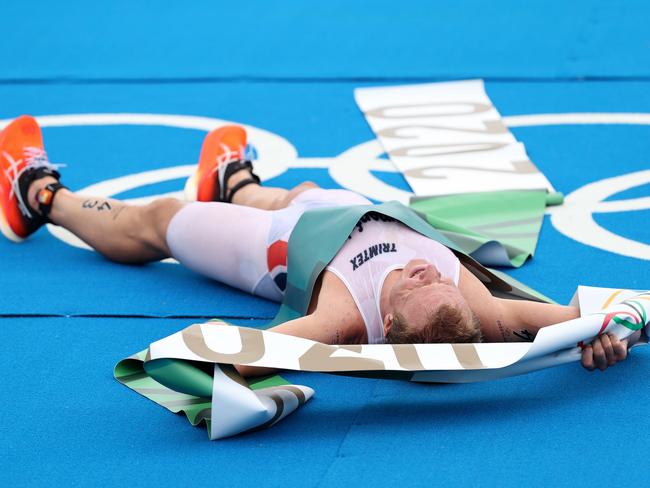
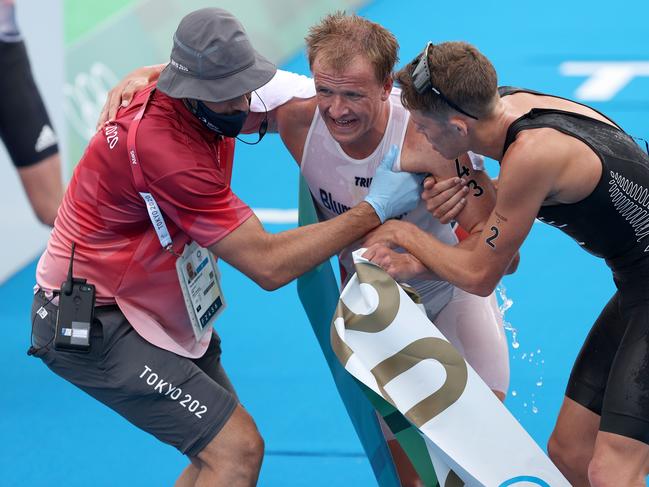
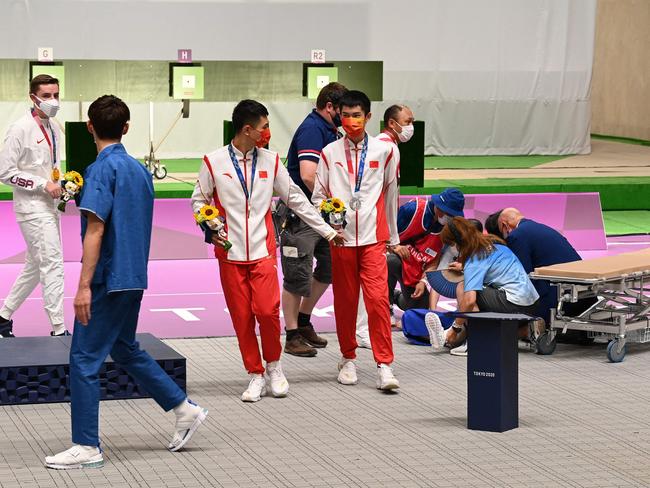
But there has been nothing mild about the weather, which has routinely topped 30 degrees with high humidity. The beach volleyball courts were 50 degrees in the sun, while a Russian archery competitor collapsed after a day competing in the sun, and several referees and officials at outdoor events have needed first-aid after being heat-affected.
The men’s triathlon finishing area was likened to a battlefield, with bodies strewn across the ground and competitors being physically assisted by coaches and trainers.
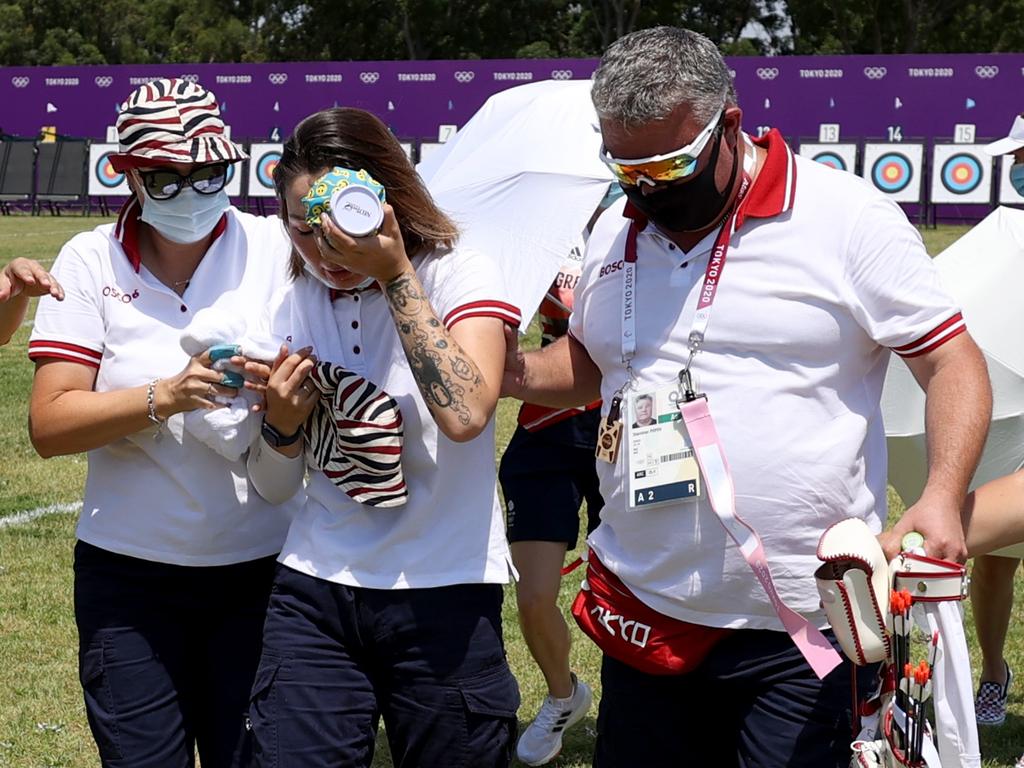
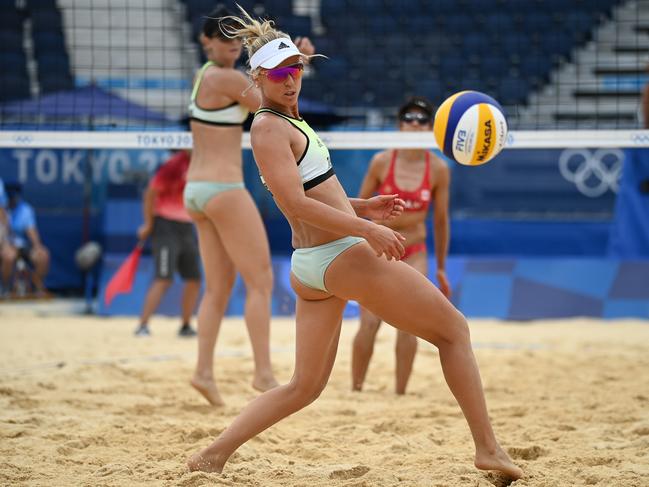
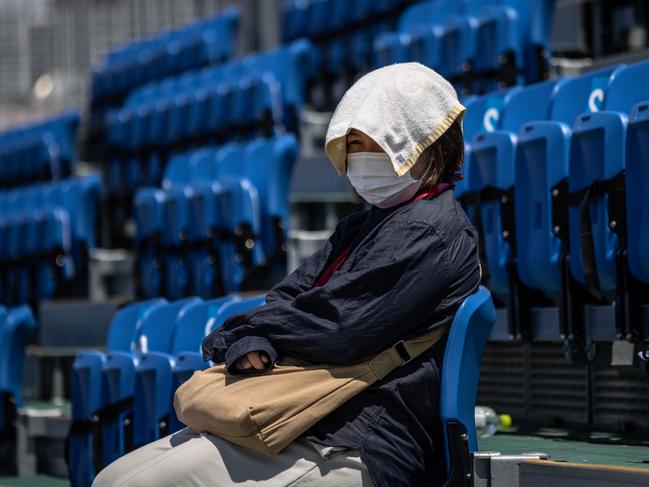
Organisers had agreed months earlier to bring the triathlon start time forward to 6.30am to try to beat the heat but it was still 27 degrees with a relative humidity of 67 per cent when the gruelling event got underway.
The women’s event on Tuesday will also start at 6.30am.
The International Tennis Federation implemented its extreme weather policy for competitors competing at the Ariake Tennis Park, allowing an extra 30 second break after sets and change of ends.
Officials use a measurement known as the Wet Bulb Globe Temperature, a measure of heat stress in direct sunlight which also takes into account wind speed, cloud cover and the angle of the sun, to determine whether an event is weather-affected.
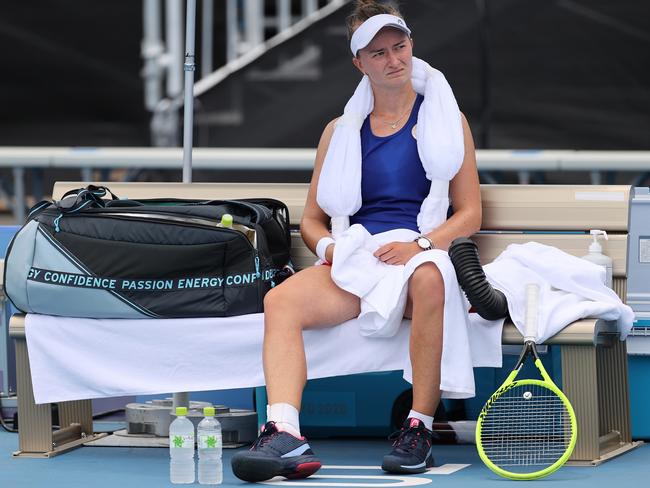
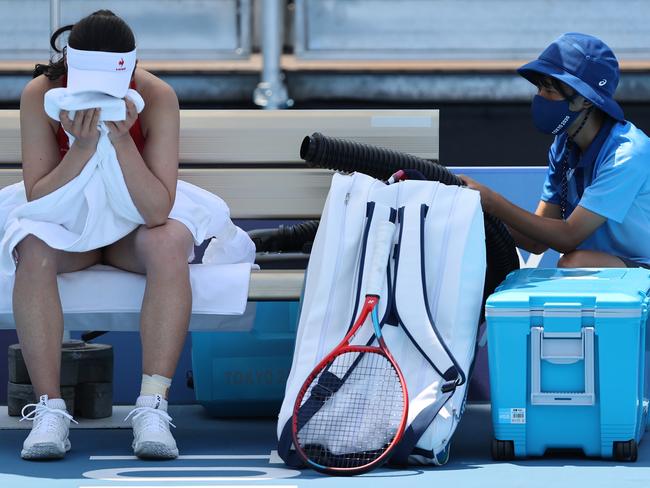
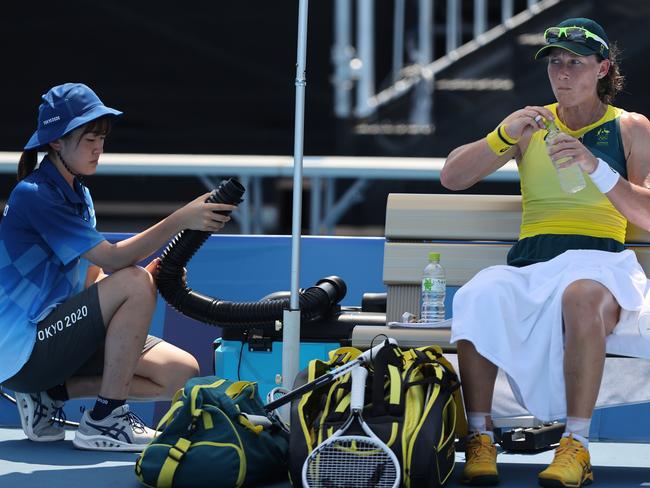
Once the WBGT threshold reaches 30.1°C, the extreme weather policy comes into effect. As well as extra breaks, a modification of play, a discretionary 10-minute break after the second set, is allowable.
The policy also allows for play to be suspended if the risk to players become extreme.
Further weather problems are due to hit Tokyo early Tuesday when Tropical Storm Nepartak is due to make landfall on the main island of Honshu.
The Japan Meteorological Agency is warning of winds gusts of up to 126kmh, with 150mm of rain due to fall over a 24-hour period.
Rowing organisers cancelled all events on Monday and Tuesday and plan to run a compressed schedule of events on Wednesday which will see nine Australian boats out on the water.
Organisers of the women’s triathlon and canoeing events were also keeping a close eye on the forecast with Nepartak potentially set to disrupt their Tuesday schedule.




